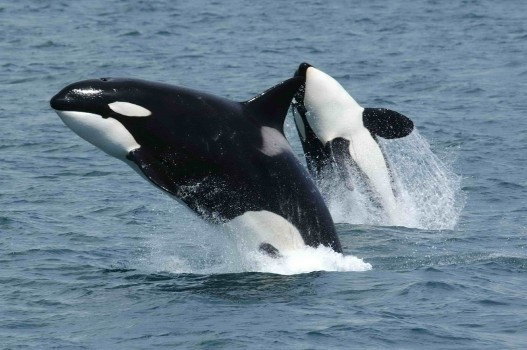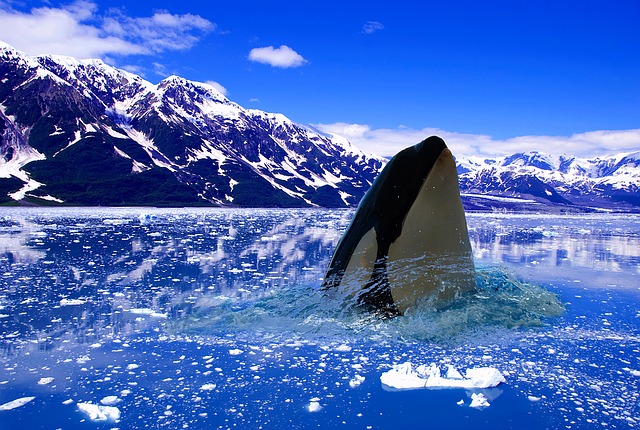
Killer Whales in Antarctica
Orcas or ‘Killer Whales’ are common in Antarctic waters and they appear to be the only species of whale to breed there. We know this because small calves have been sighted in mid winter. Orcas are not actually whales but members of the dolphin family.
Their normal black and white colouring is muted in Antarctica to a brown and yellowish hue because in those waters their skins are sometimes covered with a film of plankton called diatoms (see below).
They feed on fish, squid, Adélie and Emperor penguins, Weddell, Crabeater and Leopard seals, as well as Minke and other baleen whales and form very highly co-ordinated hunting packs based on family groups.
They are not only found in Antarctica but also throughout the world’s oceans.
In the southern hemisphere around Antarctica, wehave at least five different eco-types of killer whales.
Antarctic Type A killer whales tend to stay in the open ocean away from the ice and feed mostly on Minke whales. The Type B killer whales have now been split into two groups: pack ice killer whales which eat seals around the outer pack ice; and smaller Gerlache killer whales which focus on penguins as the mainstay of their diet.
Type C or Ross Sea killer whales feed mainly on fish and follow channels or openings in the pack ice. Types B and C have a distinctive yellowish colour from diatoms on their skin, as well as a prominent dorsal cape. Type C is the smallest known killer whale species.
Last but not least is the Type D or sub-antarctic Killer Whale, which has a tiny eye-patch and distinctive shape but not much is known about them as they have only been seen a few times.
Orcas are a beautiful looking animal but they used to give early Antarctic explorers a fright when they would surface near ice flows and look at the explorers (in their thinking) somewhat malevolently.
Sometimes they would smash into sea ice from below in an attempt to break it and catch seals or penguins on the surface, as well as giving the explorers a nasty fright but there is no record of a wild Orca outright attacking or harming a human.

